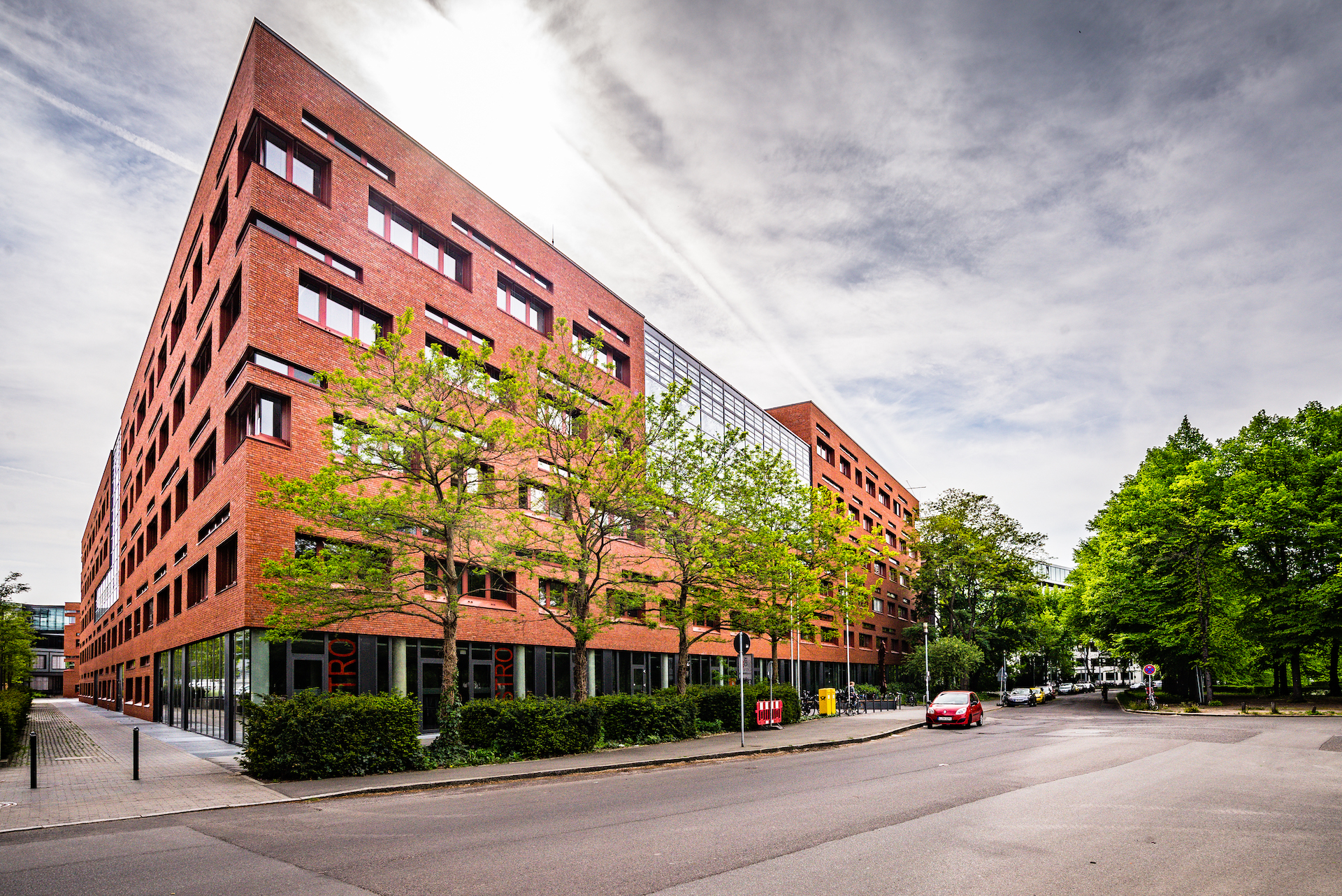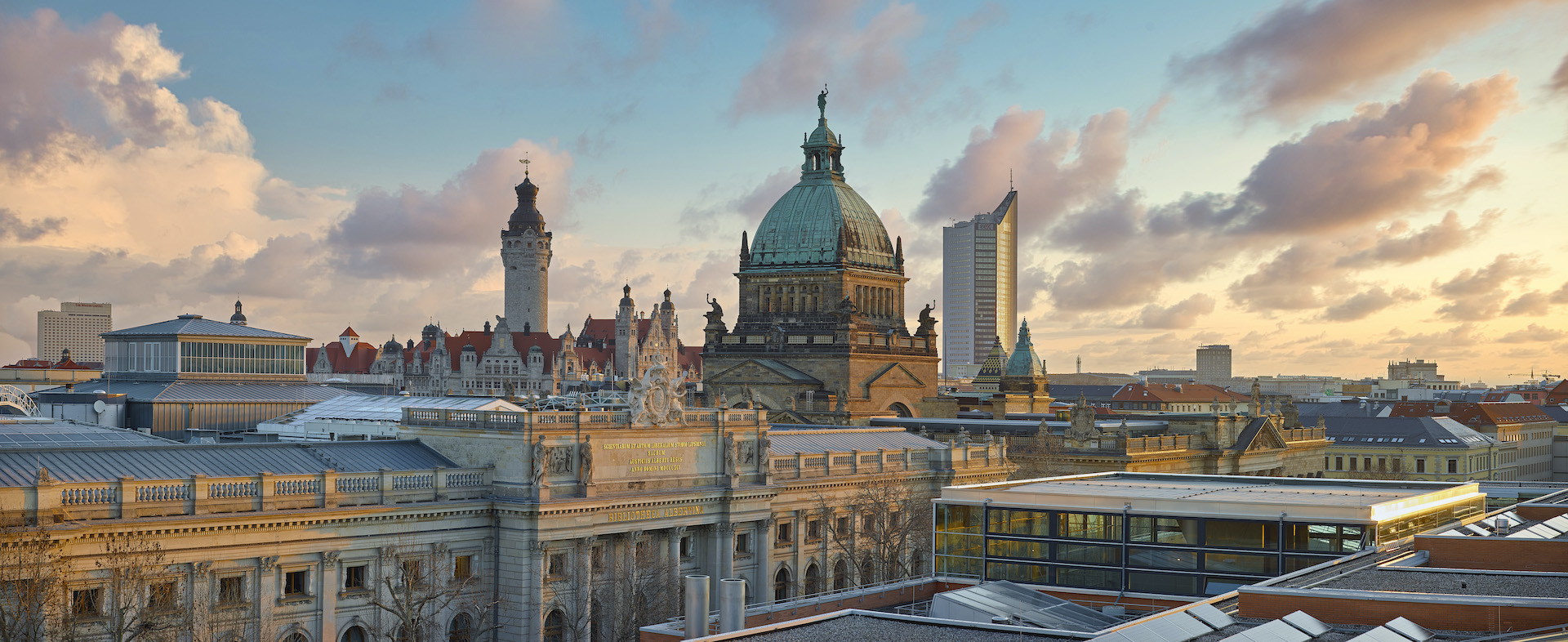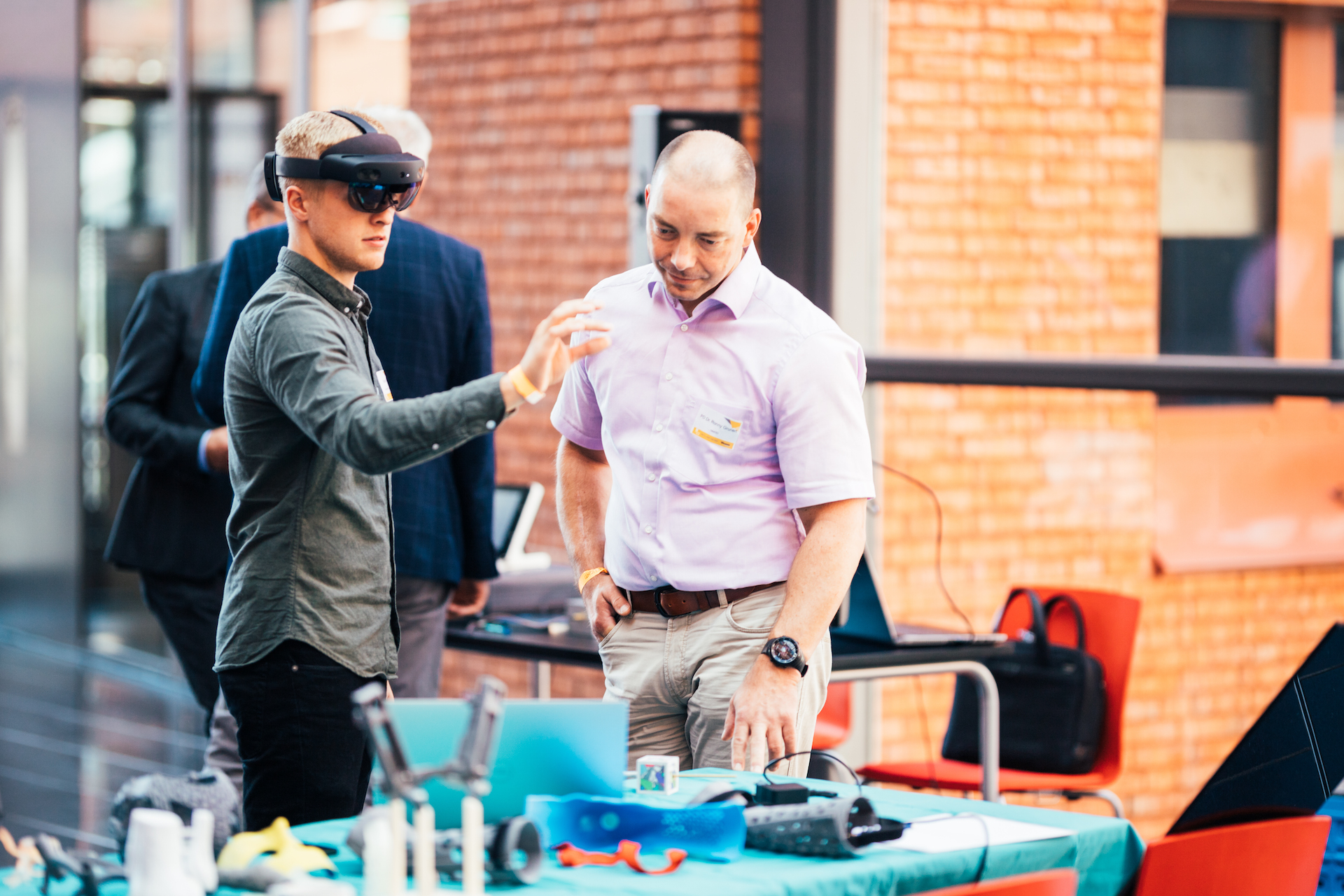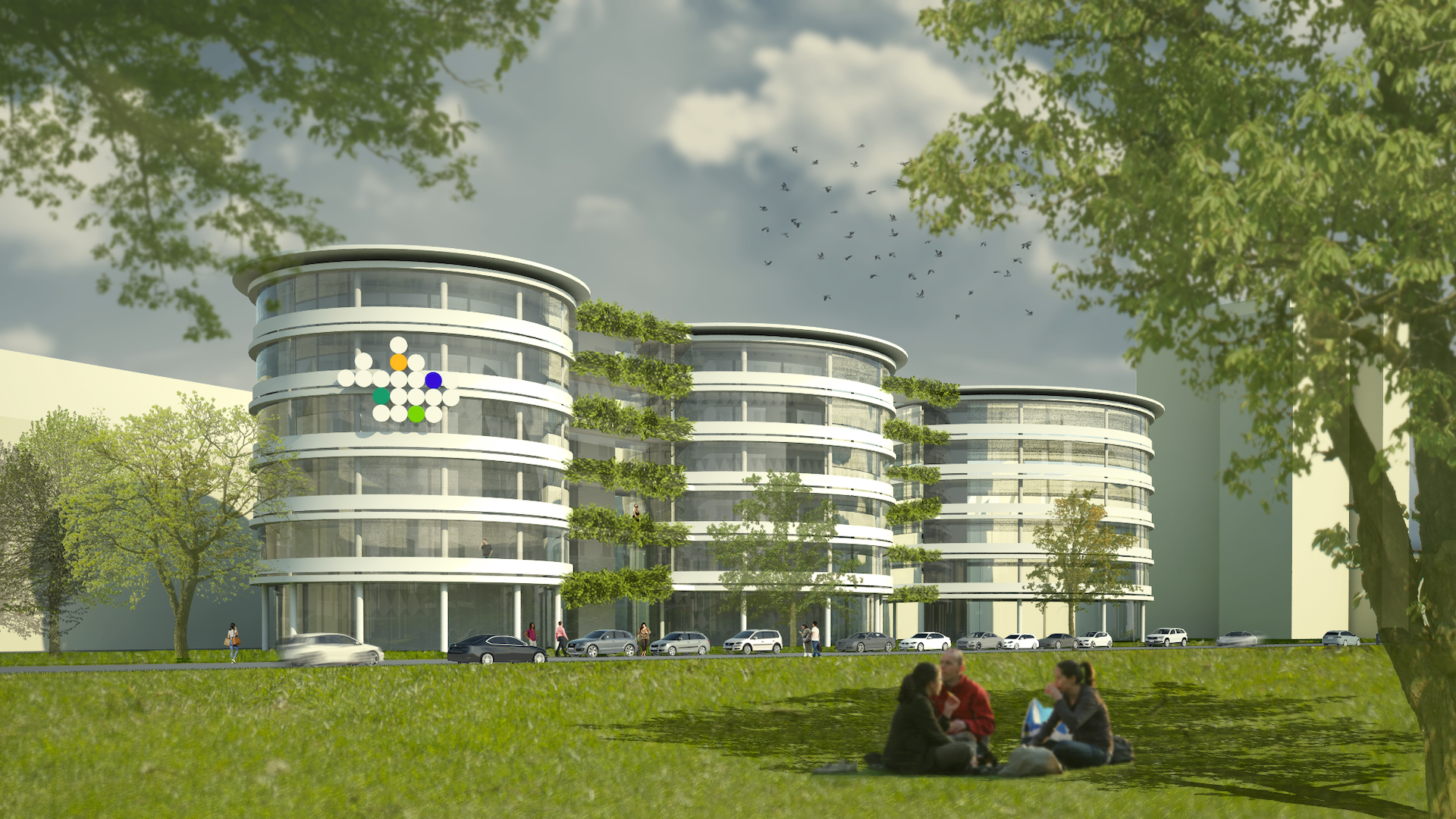Leipzig is a nucleus of innovative research offering plenty of scope for collaboration with its thriving research base. Pioneering research in areas such as the life sciences, energy, environmental technology, and ICT is driven by synergistic cooperation between research institutes, higher education, the manufacturing sector, and the City of Leipzig. Economics meets science meets economics – that’s how Leipzig works! It goes without saying that research is high on the agenda at Leipzig University and the HTWK Leipzig University of Applied Sciences. The prestigious research centers in the Healthcare and Biotech Cluster include three Max Planck Institutes, two Fraunhofer Institutes, two Helmholtz Centers, five Leibniz Institutes, three ZUSE Institutes, and the BBZ Center for Biotechnology and Biomedicine. Some of them are introduced in more detail below.
Leipzig is home to a wide range of higher education and research. The city’s Healthcare and Biotech Cluster includes two universities and a university hospital as well as several esteemed research centers. Powered by a 41,000-strong workforce, it also has another 6,000 students and trainees waiting in the wings – your future employees, perhaps?







